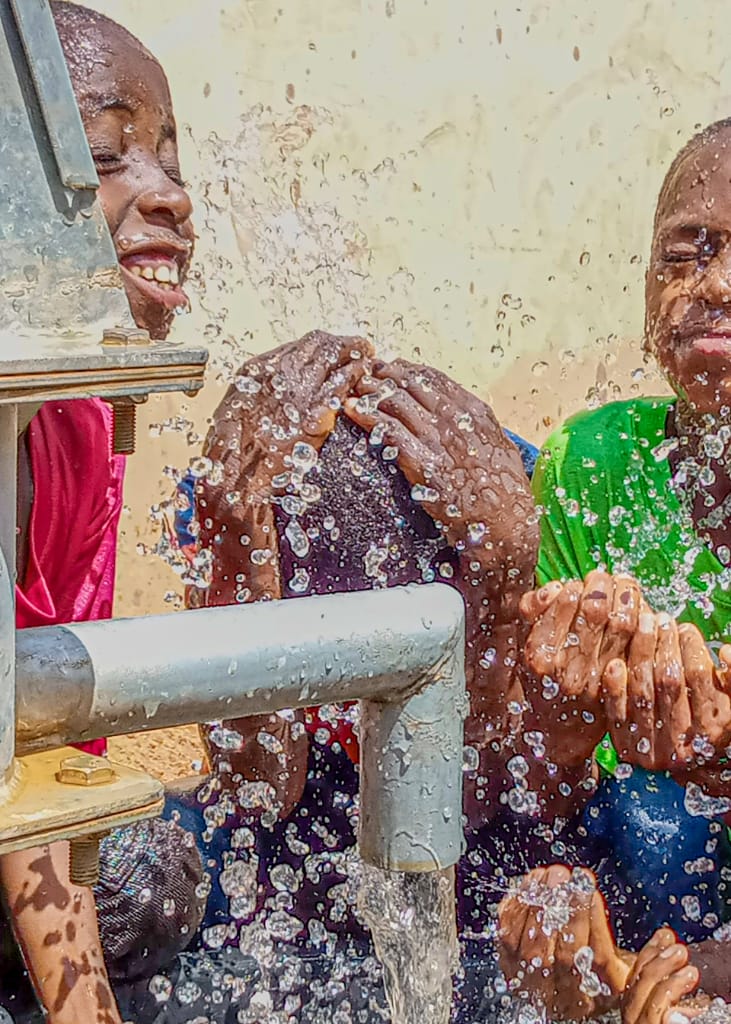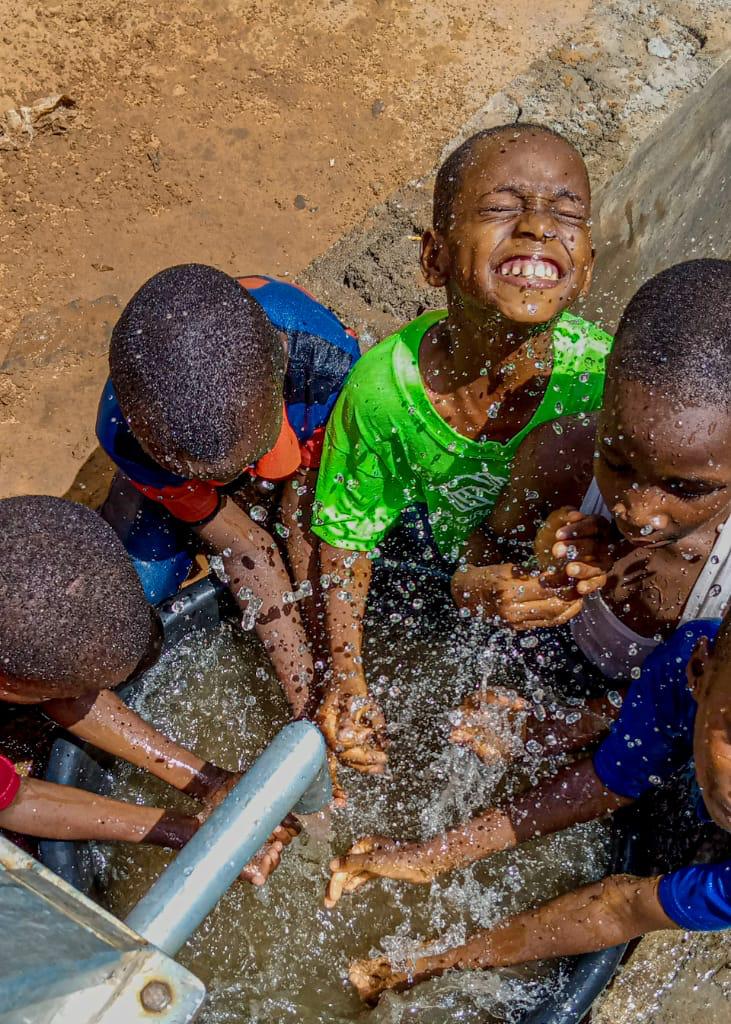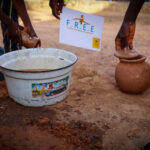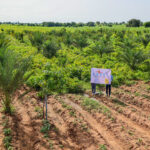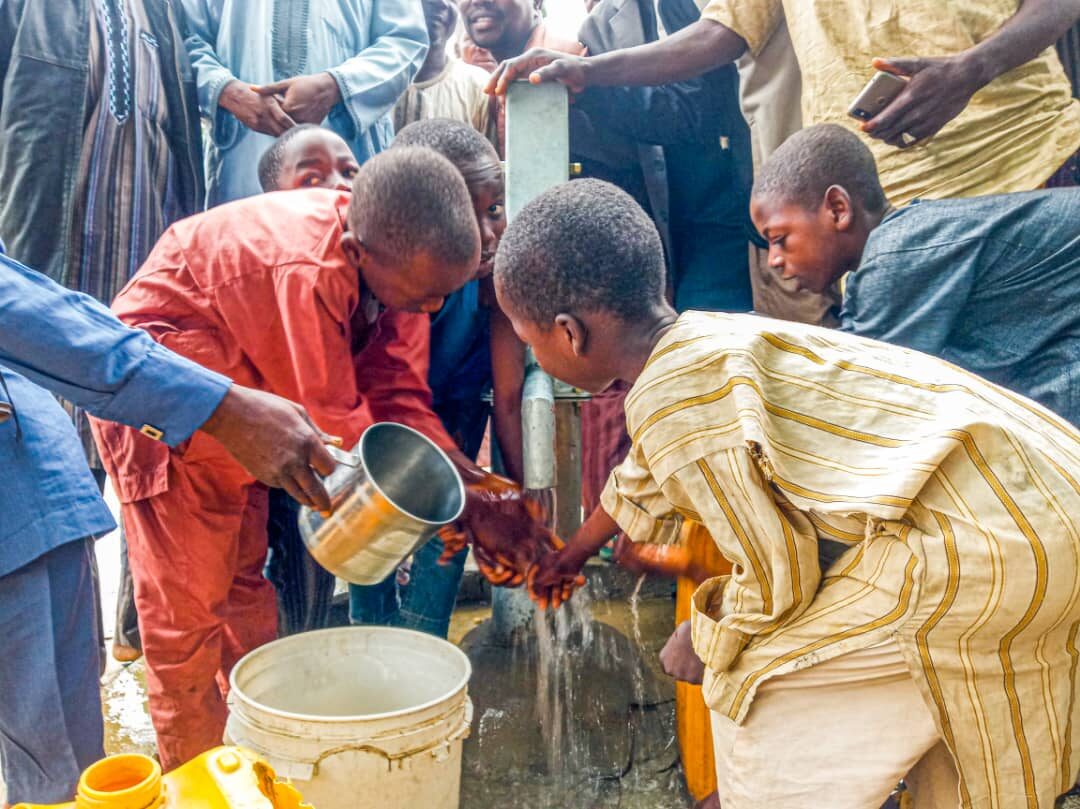
Water, Sanitation, and Hygiene (WASH)
Clean Water Access
Our WASH initiatives aim to improve access to clean and safe drinking water in remoteband underserved communities, especially those impacted by conflict or poverty. We construct various types of water wells—manual, motorized, and solar-powered customized to the unique needs of each location. These projects ensure that communities have a reliable source of potable water, which is essential for health and daily life. According to the World Health Organization, over 60 million Nigerians lack access to safe drinking water, leading to various waterborne diseases.
- Hand-Operated Well Drilling: Providing clean water access through manual wells to rural communities in Nigeria, where access to safe drinking water is a significant challenge.
- Solar-Powered Motorized Wells: Harnessing sustainable energy to power water pumps in remote areas, ensuring a reliable and eco-friendly water supply. This is particularly important in regions affected by frequent power outages.
- Electric/Generator-Powered Drilling: Providing water access to areas with reliable electricity or using generators as a backup power source. This is crucial for urban areas and IDP camps where the water demand is high.
- Borehole Repair and Maintenance: Ensuring the longevity of existing water sources by providing regular maintenance and repairs, preventing breakdowns and disruptions to water supply.
- VLOMS Training: Empowering communities to monitor and manage their water
resources effectively through Village Level Monitoring Systems (VLOMS). This
helps to ensure equitable distribution and prevent water wastage.
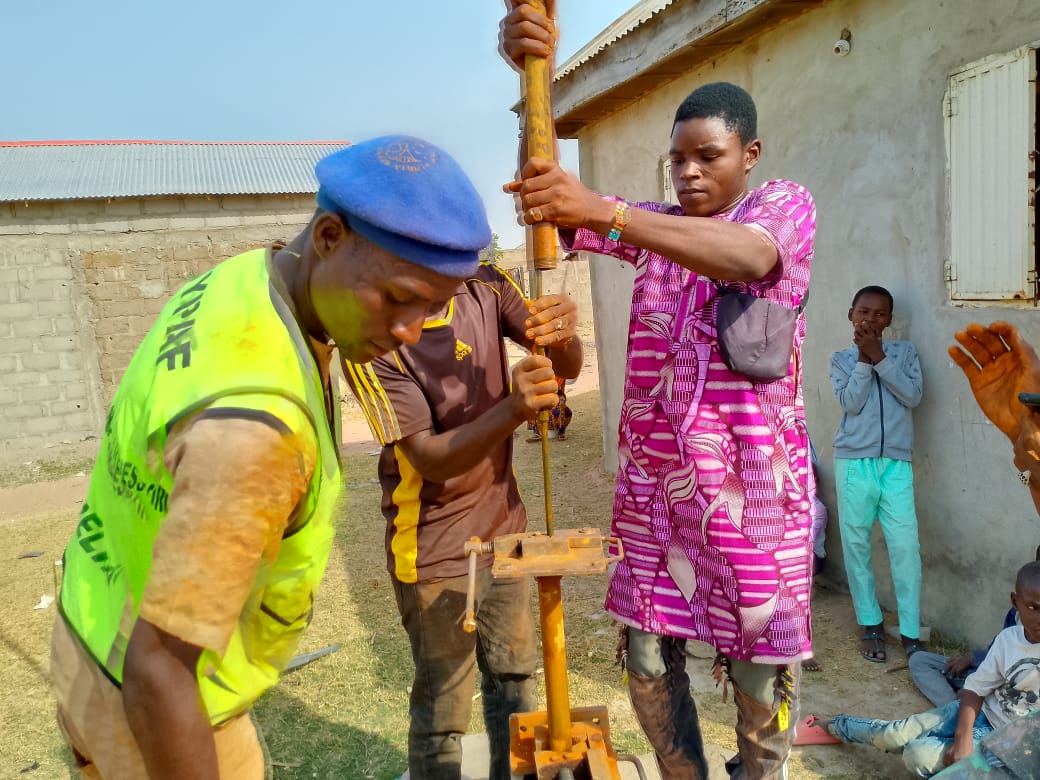
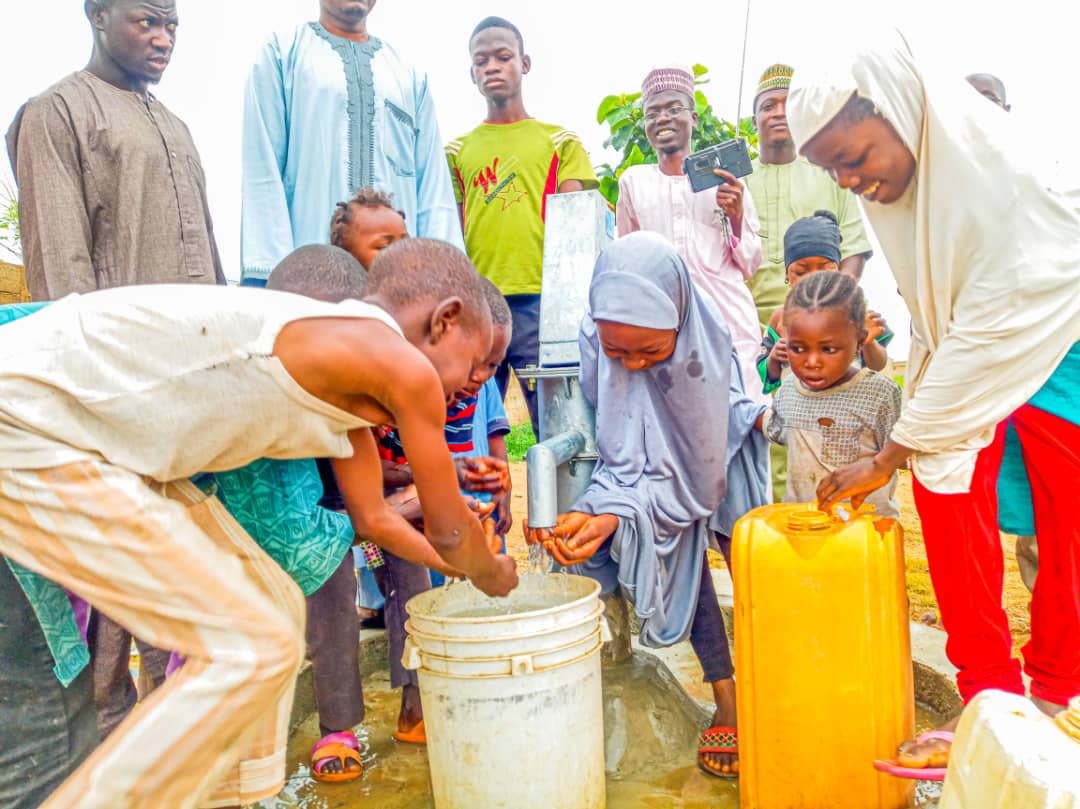
Sanitation Facilities
To improve hygiene standards and mitigate the risk of waterborne diseases, we build
essential sanitation facilities, including toilets and handwashing stations. Designed to be durable and accessible, these facilities cater to the needs of all community members,
enhancing overall public health.
Hygiene Education
Education is fundamental to maintaining health and preventing disease. Our extensive hygiene education programs teach communities about proper sanitation practices, emphasizing handwashing, safe food preparation, and personal hygiene. By empowering individuals with this knowledge, we help reduce the spread of illnesses and promote healthier lifestyles.
Hygiene Kits
In areas with limited access to hygiene products, we distribute kits containing essential items like soap, menstrual hygiene products, and disinfectants. These kits are critical for maintaining personal hygiene and preventing disease, particularly among vulnerable populations.
